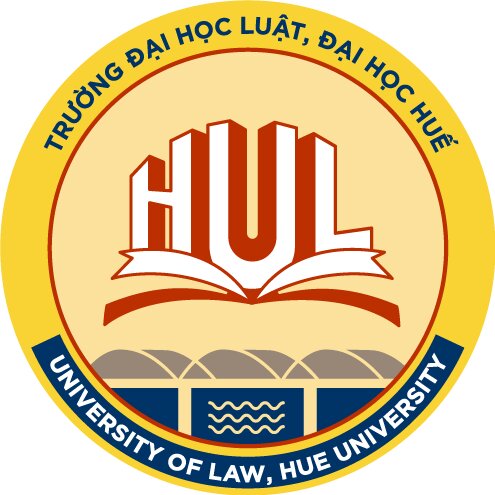Best Inheritance Law Lawyers in Ho Chi Minh City
Share your needs with us, get contacted by law firms.
Free. Takes 2 min.
List of the best lawyers in Ho Chi Minh City, Vietnam

About Inheritance Law in Ho Chi Minh City, Vietnam
Inheritance law in Vietnam governs how a decedent’s assets are distributed to heirs, either through a will or by statutory rules when there is no will. In Ho Chi Minh City, residents commonly encounter probate, estate settlement, and disputes over shares in real estate, bank accounts, and business interests located in the city. The framework blends national civil law with local court procedures and notary practices.
A key feature is the distinction between testamentary arrangements (wills) and intestate succession (when someone dies without a valid will). In both paths, heirs may include spouses, children, parents, and other relatives under the Civil Code. Practical steps often involve court filings, notary services, and, in complex cases, cross-border issues for foreign heirs. It is advisable to consult a local luat su (attorney) who understands Ho Chi Minh City procedures and real property rules.
Source: Civil Code of Vietnam establishes inheritance rules for wills and forced heirs; Civil Procedure Code governs dispute resolution in courts.
Why You May Need a Lawyer
If you are facing an inheritance matter in Ho Chi Minh City, a qualified attorney or luat su can help you navigate local procedures and protect your rights. The following concrete scenarios illustrate when a lawyer is typically necessary.
- You are an heir in Ho Chi Minh City and the decedent’s estate includes apartment units or land with title in dispute among siblings or a spouse. A lawyer can organize title data, assess debts, and pursue a fair division.
- You question the validity of a will left by a relative who lived in District 1 or Phu Nhuan; you suspect forgery or coercion and need to challenge the document in court.
- You are named as executor or administrator in a will and must perform duties such as inventorying assets, paying debts, and distributing assets; a lawyer helps ensure compliance with procedures.
- You are a foreign national or foreign-owned business stakeholder with inheritance rights in Ho Chi Minh City and require coordination with Vietnam’s local rules and possible cross-border issues.
- A disagreement arises among heirs about the proper share of a real estate asset in HCMC, and mediation fails; you need litigation support and procedural strategy in a local court.
- You want to prepare a legally valid will to reduce future disputes, particularly when real estate or business interests are involved in Ho Chi Minh City.
Local Laws Overview
The inheritance framework in Ho Chi Minh City relies on national laws implemented nationwide, along with local court practices. Here are 2-3 core laws or regulations that govern inheritance matters in this jurisdiction.
- Civil Code of Vietnam (2015) - Governs testamentary and intestate inheritance, the rights of heirs, and rules for distributing property, including real estate. The major reforms took effect starting in 2017, bringing clearer rules on wills, forced heirs, and asset division.
- Civil Procedure Code (2015) - Sets out the procedural framework for handling inheritance disputes in courts, including jurisdiction, timelines, and evidence standards. This code shapes how Ho Chi Minh City courts process probate and succession cases.
- Law on Notary Public (Notary Law amendments in 2014/2015) - Defines notary functions in authenticating wills, certifying estate inventories, and providing lawful guidance on inheritance matters. Notaries can play a critical role in preventing later disputes.
Note: Local practice in Ho Chi Minh City may involve additional guidelines from the Ho Chi Minh City People’s Court and the local Department of Justice on case management, notice requirements, and filing formats. See the official government portals for current texts and updates:
Source: Civil Code and Civil Procedure Code texts available through official government portals.
Frequently Asked Questions
What is the basic difference between a will and intestate inheritance in Vietnam?
A will expresses the decedent’s wishes about asset distribution, if valid. Intestate inheritance applies when there is no valid will, and the law dictates shares for heirs.
How do I start a probate process in Ho Chi Minh City?
Identify the heirs, prepare asset inventories, and file a petition with the appropriate People’s Court or Notary Office in Ho Chi Minh City. A luat su can guide you through forms and deadlines.
What documents are required to file a will in court in Ho Chi Minh City?
You typically need the decedent’s death certificate, the will itself, documents proving heirs’ identities and relationships, and title documents for estate assets.
How long does an inheritance case typically take in Ho Chi Minh City?
Simple cases may conclude in 6-12 months; complex estates with real estate or foreign elements often extend to 12-24 months or longer, depending on cooperation and court schedules.
Do I need a will to avoid disputes among heirs in Vietnam?
A clear, legally valid will can reduce disputes, but it does not guarantee resolution. Proper execution and timely filing help protect the decedent’s wishes.
Is there an inheritance tax in Vietnam and who pays the tax?
Vietnam does not currently levy an inheritance tax in most standard cases; however, tax treatment can vary with asset type and cross-border issues. Consult a local luat su for specifics.
What steps are involved to recognize a foreign will in Vietnam?
Recognition requires validation under Vietnamese law, translation, and possible court or notarial authentication. Cross-border issues may affect enforceability.
Do I need a Vietnamese lawyer if I am a foreigner living in Ho Chi Minh City?
Yes. A local attorney familiar with Ho Chi Minh City procedures and real estate rules will streamline filings and resolve jurisdictional questions.
How much does hiring an inheritance lawyer typically cost in Ho Chi Minh City?
Costs vary by case complexity, asset type, and attorney experience. Expect consultation fees, hourly rates, and possible fixed fees for document preparation.
What is the difference between a notary and a solicitor in inheritance matters?
A notary authenticates documents and may certify wills, while a solicitor or luat su represents clients in court and provides legal advocacy.
Can a foreign will be recognized in Vietnam and what is the process?
Recognition involves validation under Vietnamese law, translations, and potential court involvement. A skilled luat su can navigate cross-border requirements.
Should I hire a local attorney in Ho Chi Minh City or can I hire from another province?
Hiring locally is usually best for logistics, court familiarity, and asset location. A local attorney can coordinate with Ho Chi Minh City authorities efficiently.
Additional Resources
Use official government channels to review laws, find forms, and locate local services in Ho Chi Minh City.
- Ministry of Justice (MoJ) - Official national guidance on civil law, notaries, and inheritance procedures. https://moj.gov.vn
- Chinh Phu Government Portal - Access to current laws, regulations, and legal documents for Vietnam. https://www.chinhphu.vn
- Thư viện pháp luật (Legal Library) on Chinh Phu site - Official collection of Vietnamese legal texts including the Civil Code and Civil Procedure Code. https://thuvienphapluat.chinhphu.vn
These resources provide authoritative texts and official guidance to supplement local counsel in Ho Chi Minh City. For tailored interpretation, consult a licensed luat su in your area.
Next Steps
- Define your inheritance objective and asset types in Ho Chi Minh City; gather titles, death certificates, and family documents. Timeline: 1-2 weeks.
- Identify a qualified luat su who specializes in inheritance and has experience with Ho Chi Minh City courts and notaries. Timeline: 1-2 weeks for initial interviews and referrals.
- Schedule an initial consultation to discuss your case, required documents, and likely strategy; obtain a written engagement proposal and fee estimate. Timeline: 1 week.
- Prepare and submit necessary documents with your lawyer; ensure translations and proper notarization where needed. Timeline: 2-6 weeks depending on assets.
- Monitor court or notary proceedings, respond to requests for additional information, and adjust strategy as needed. Timeline: ongoing during case settlement.
- Review settlement options, potential mediation, and final distribution plans; obtain a formal document of inheritance and asset transfer. Timeline: 1-3 months after resolution.
- Confirm post-transaction steps such as updating titles, bank accounts, and tax or debt settlements with your luat su. Timeline: 1-4 weeks post-distribution.
Lawzana helps you find the best lawyers and law firms in Ho Chi Minh City through a curated and pre-screened list of qualified legal professionals. Our platform offers rankings and detailed profiles of attorneys and law firms, allowing you to compare based on practice areas, including Inheritance Law, experience, and client feedback.
Each profile includes a description of the firm's areas of practice, client reviews, team members and partners, year of establishment, spoken languages, office locations, contact information, social media presence, and any published articles or resources. Most firms on our platform speak English and are experienced in both local and international legal matters.
Get a quote from top-rated law firms in Ho Chi Minh City, Vietnam — quickly, securely, and without unnecessary hassle.
Disclaimer:
The information provided on this page is for general informational purposes only and does not constitute legal advice. While we strive to ensure the accuracy and relevance of the content, legal information may change over time, and interpretations of the law can vary. You should always consult with a qualified legal professional for advice specific to your situation.
We disclaim all liability for actions taken or not taken based on the content of this page. If you believe any information is incorrect or outdated, please contact us, and we will review and update it where appropriate.















